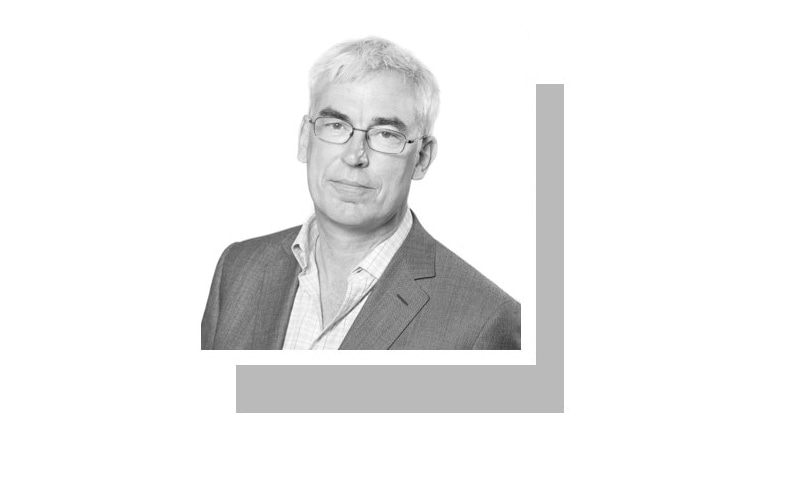
BACK in 1954, the Justice Munir Commission report into the anti-Ahmadi violence in Punjab famously complained that no two Pakistani clerics, or “divines” in the language of the time, could agree on the definition of a Muslim. Today, President Trump might be finding himself similarly frustrated. His White House staff cannot agree on how to describe violent jihadists. Are they Islamist terrorists or just terrorists? Are they bad Muslims, non-Muslims or perfectly valid Muslims with a fringe point of view?
Last week, in his first speech to his staff, the president’s new national security adviser, Lt Gen H.R. McMaster, said the term “radical Islamic terrorism” wasn’t helpful for US goals. His remark suggests he agrees with the approach taken by Trump’s predecessor. When Obama was still in office, the grieving mother of a US soldier asked why the White House would not use the term ‘Islamic terrorist’. “...Al Qaeda and [Islamic State] ... they have perverted and distorted and tried to claim the mantle of Islam for an excuse for basically barbarism and death,” Obama said. “...If you had an organisation that was going around killing and blowing people up and said, ‘We’re on the vanguard of Christianity.’ As a Christian, I’m not going to let them claim my religion and say, ‘you’re killing for Christ.’ I would say, that’s ridiculous.”
The White House cannot agree on how to describe violent jihadists.
In the aftermath of the 2015 Charlie Hebdo attack in Paris, French President François Hollande took a similar line. “Those who committed these acts have nothing to do with the Muslim religion,” he said.
It’s a position that has sparked some debate amongst violent jihadists. Some have joked on social media platforms about being declared a non-Muslim — or being ‘takfir’ed’ as one put it — by Western politicians. After all, they ask, how can men such as Gen McMaster, president Obama or President Hollande presume they have the scholarly credentials to declare who is and who isn’t a Muslim?
But its not just jihadists who reject the McMaster/Obama/Hollande line. Dr Sebastian Gorka, the deputy assistant to President Trump, has for some years lectured the US military on the sources of violent jihadism. “This isn’t about poverty or lack of education,” he has said, “It’s about people who are fighting for the soul of Islam — not a war with Islam, but a war inside Islam; as King Abdullah, as General Sisi has said, for which version is going to win.”
Gorka is not arguing that violent jihadism is the only valid interpretation of the religion. On the contrary, other Muslims, he says, are struggling for their own interpretations to prevail. “There are people every day risking their lives on their blog sites, in North Africa, in the Middle East pushing back on this, saying, ‘I’m a Muslim, but I don’t think an infidel needs to be killed’.”
Violent jihadists, on Gorka’s account, are not non-Muslim or even bad Muslims. Rather they are valid Muslims who believe in the use of violence to further their goals. Others in the new White House team have similar views. President Trump’s most trusted adviser, chief strategist Steve Bannon, has been speaking about these issues for some years. In a speech given in Rome in 2014 he spoke of a coming clash between Christianity and Islam. “We are in an outright war against jihadist Islamic fascism,” he said. “And this war is, I think, metastasizing far quicker than governments can handle it.”
The extent to which religion can be used to justify jihadist attacks has also been debated in the UK. In 2014, former British prime minister Tony Blair complained that some Western commentators “went to extraordinary lengths in their attempts to deny that these conflicts were about Islam, arguing instead that local or historic factors were more important.” It was odd, he said, to deny that Islam was the central element of the various struggles.
Blair’s successor David Cameron made similar remarks. In the aftermath of the 7/7 attacks on London’s transport system, before he was prime minister, Cameron said that: “the Muslim community in this country doesn’t support what is happening”. But later he modified that position arguing that some Muslims, even if they do not use force themselves, agree with many of the ideas of the violent jihadists. “Simply denying any connection between the religion of Islam and the extremists doesn’t work,” he said.
So what of the new American president? He may just have appointed McMaster as his National Security Adviser, but there is little doubt that Trump’s views are more in line with those of Gorka and Bannon. In his remarks to the Conservative Political Action Conference in Washington last week, Donald Trump said this: “So let me state this as clearly as I can. We are going to keep radical Islamic terrorists ... out of our country.”
The writer is a British journalist and author of Pakistan: Eye of the Storm.
Published in Dawn, March 2nd, 2017













































